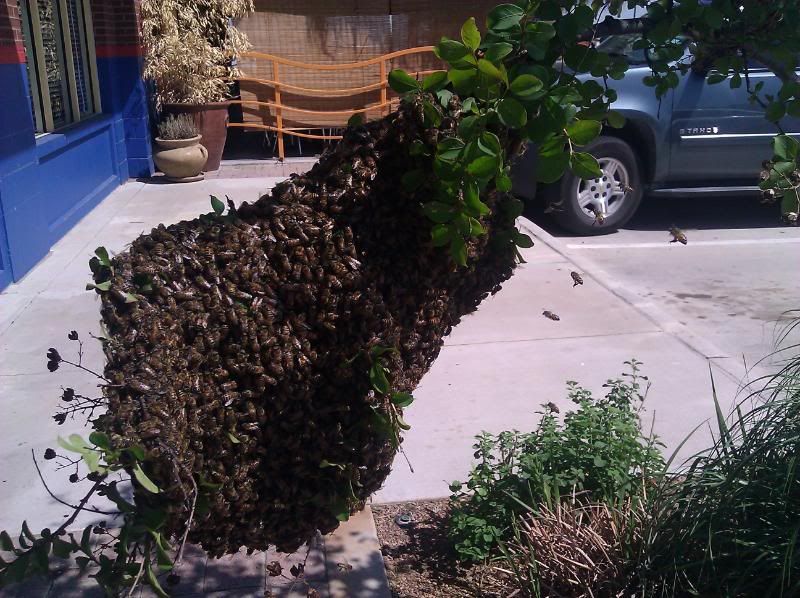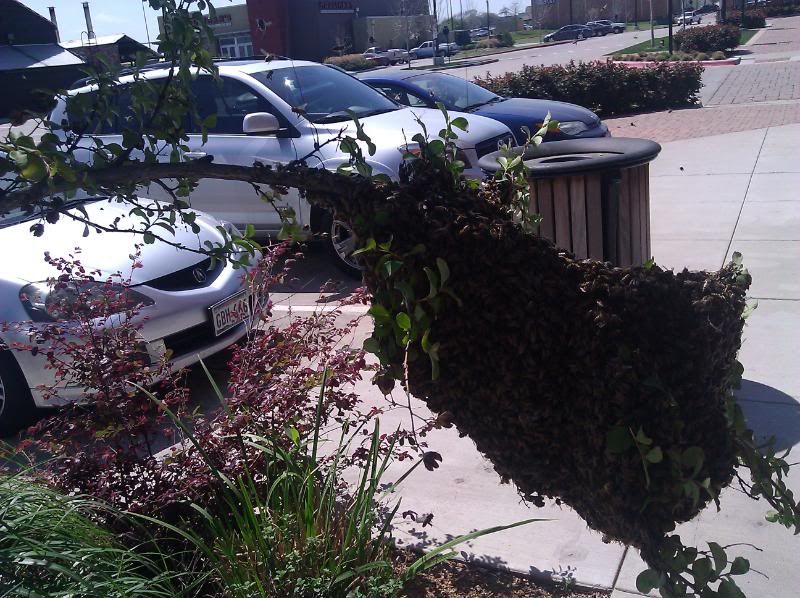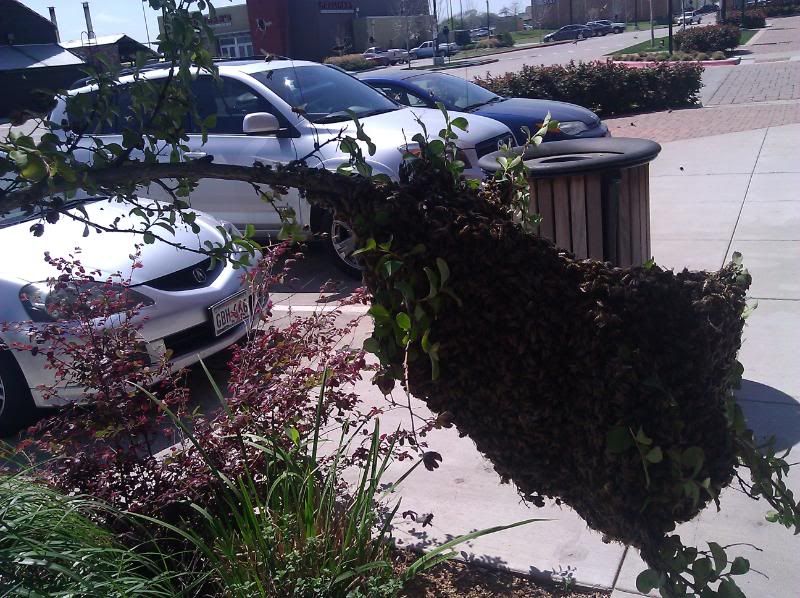This is how I interpret people's reactions to this bee swarm I saw yesterday outside of a restaurant. My approaching the swarm with little protest from the bees (and some getting comfortable enough after a few warning buzzes to start landing on me) was followed quickly by one ignorant man telling me I was risking my life because they could be africanized. I told him, no, they weren't and I wasn't allergic. This was after I had already walked by the swarm a couple times as well as numerous other people getting within 20 feet of the hive-in-the-making before realizing it was there. There was also a guy with a leaf blower that walked by and a bunch of people sitting on the patio 50 feet away. He accused me of being a biologist as if it was some disgusting practice. 
This was not a great endeavor for the bees. Over time, the branch was only hanging a foot and a half off the ground. The bent branch they are hanging onto was originally...vertical. The restaurant called someone to smoke them out but I left before I witnessed it. Anyway, pics!
The restaurant called someone to smoke them out but I left before I witnessed it. Anyway, pics!




This was not a great endeavor for the bees. Over time, the branch was only hanging a foot and a half off the ground. The bent branch they are hanging onto was originally...vertical.




